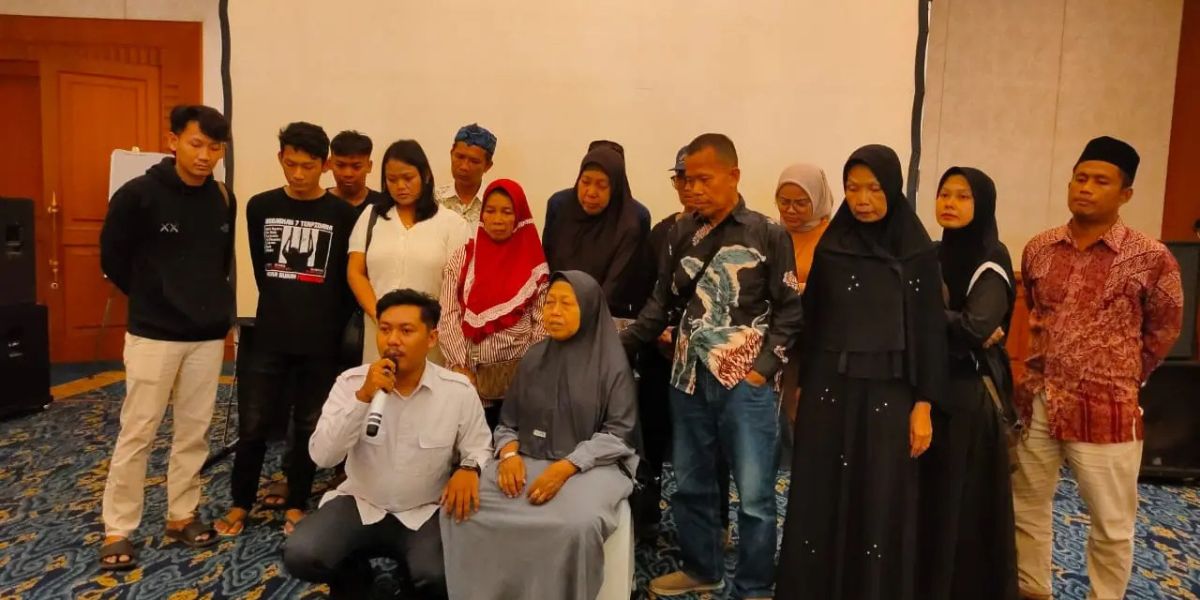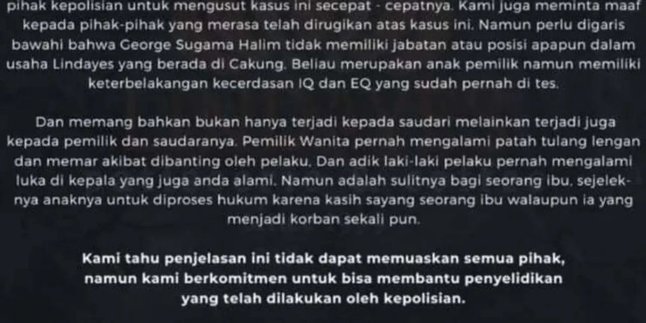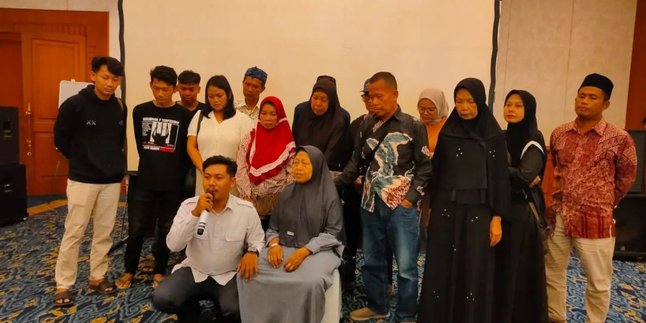Kapanlagi.com - The Supreme Court (MA) has just made an important decision by rejecting the judicial review (PK) application submitted by eight convicts in the murder case of Vina Dewi Arsita and Muhammad Rizky, commonly known as Eky, in Cirebon. In its ruling, the MA emphasized that there was no error in the previous decision and that the new evidence presented did not meet the criteria according to Article 263 of the Criminal Procedure Code (KUHAP).
This decision underscores the importance of PK applications being based on strong facts and evidence. Although the convicts' legal counsel attempted to bolster their argument by presenting various pieces of evidence, including the results of conversation extractions and retraction of testimony from key witnesses, the MA maintained that these pieces of evidence could not be considered as novum.
This article will thoroughly explore the reasons behind the Supreme Court's rejection of the PK, the chronology of the PK submission, and the responses from various parties regarding this influential decision. Stay tuned for complete information summarized by Liputan6 on Tuesday (17/12).
1. Rejection of the PK by the Convicts in the Vina Cirebon Case Took Place in Court, Monday (16/12)
Eight convicts in the murder case of Vina and Eky in Cirebon submitted requests for Judicial Review (PK) divided into two cases; two of them submitted the first request, while five others submitted the second case.
On the other hand, Saka Tatal, a juvenile convict who has been released, also filed a PK to clear his name from involvement in this dark case. However, in the deliberation held on Monday (16/12), the Supreme Court firmly rejected all PK requests, as stated by the Supreme Court spokesman, Yanto, in a press conference broadcast on YouTube Liputan6.
2. Judge's Consideration in Rejecting the PK Request: No New Evidence According to Article 263 Paragraph 2 of the Criminal Code
The Supreme Court spokesman, Yanto, revealed that the rejection of the Judicial Review (PK) request was based on the fact that there was no error in the judges' decisions at all levels, from the District Court to cassation.
This indicates that the entire legal process has been conducted properly. Furthermore, the Supreme Court assessed that the new evidence or novum presented by the convicts did not meet the criteria stipulated in the Criminal Code (KUHP).
"The panel of judges rejected this PK because there was no error in the judges' assessment and the new evidence presented did not meet the criteria as new evidence according to Article 263 Paragraph 2 of the Criminal Procedure Code (KUHAP)," explained Yanto.
3. Why is Novum Not Considered New Evidence?
In a strategic move to file for a Judicial Review (PK), the defense team of the convicted individuals presented several new pieces of evidence that drew attention, such as the results of mobile phone conversation extractions, a shocking confession from a key witness who retracted their testimony, and allegations of new facts stating that the incident was actually an accident.
However, the panel of judges firmly assessed that this evidence did not meet the criteria for novum, which should be new and significant enough to influence the established decision.
4. Response from the Defense Counsel and the Family of the Convicted
The defense counsel of the convicted individuals felt devastated by the Supreme Court's decision, which they viewed as a legal tragedy, claiming that the evidence they presented was strong enough to warrant a review.
The family of the convicted individuals could not hide their deep sadness, feeling that this decision had robbed them of hope for justice. However, the defense counsel remains committed to seeking other legal avenues.
In a statement from the Peradi team accompanying the PK of the 7 convicted individuals in the Vina Cirebon case, Jutek Bongso, they emphasized that although they had presented new evidence, such as the results of Widi's mobile phone extraction and witnesses stating that the incident was an accident, this evidence was still not considered novum by the panel of judges.
"We have presented facts that have not been revealed, including two witnesses who saw the incident not as a murder, but as an accident. Is this not novum? All of this has been conveyed in the PK trial," he said with hope.
5. Implications of the Rejection of the Cassation (PK) in This Case
The Supreme Court has reaffirmed its firm decision by rejecting the cassation request (PK), indicating that the legal process has adhered to existing regulations. With this decision, the convicted individuals are required to serve their sentences, including life imprisonment, without exception.
Moreover, this ruling also emphasizes that the submission of a PK cannot be arbitrary; it must be accompanied by strong new evidence that can prove there was an error in the previous ruling. The message is clear: justice is not only upheld but must also be based on irrefutable facts.
6. What are the reasons for the Supreme Court's rejection of the cassation of the convicted in the Vina Cirebon case?
The Supreme Court (MA) rejected the cassation request because it was deemed that there was no error in the previous judge's ruling, and the new evidence presented did not meet the established criteria.
7. What is novum in PK?
Novum appears as a new discovery that has not been revealed before, and it could shake the foundations of court decisions that have become legally binding.
8. Who filed PK in the Vina case?
Eight individuals involved in the tragic murder case of Vina have now been sentenced, including a young convict named Saka Tatal, adding to the long list of perpetrators in this case that has shaken the community.
9. What are the legal steps after PK is rejected?
After the rejection of the application for judicial review (PK), there are still several legal avenues that can be pursued, such as applying for clemency, amnesty, or even filing a second PK if there is new evidence that can support the case.
(kpl/srr)
Disclaimer: This translation from Bahasa Indonesia to English has been generated by Artificial Intelligence.












